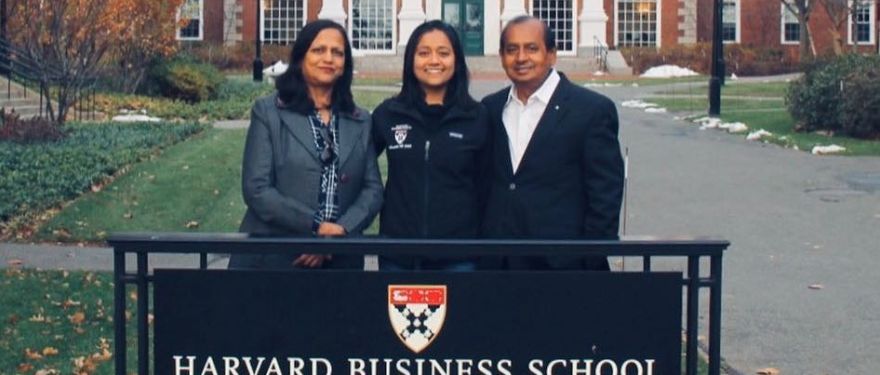I was born and raised in a small town in eastern India, called Jamshedpur (also known as Tatanagar). The city is named after Jamshedji Tata, who, in 1907, founded what would later become the Tata group of industries. Jamshedpur is one of the cleanest and greenest cities in India despite having a factory in the middle of the city, and it is probably the only city in India where you can drink clean water straight out of the tap.

Both my grandfather and father worked at Tata Steel, the iconic steel manufacturing factory. I grew up listening to their stories about machines, innovation, and the hardships of working in a manufacturing factory. I was heavily influenced by my father’s eagerness to relate my school textbook science lessons to examples from his factory. An impact of this practical approach to learning was my later interest in applied sciences, which drove my subsequent education and career choices. Graduating from IIT Kharagpur, I decided to join Schlumberger – the world’s largest oilfield services company. Schlumberger, founded in 1926, in many ways reminded me of Tata Steel, a company that cares for its people while returning value to its shareholders by focusing on technology and innovation.
40,000~ Feet Below the Surface

My earliest assignments in Schlumberger were in the Gulf of Mexico on ships that were equipped to look for oil and gas ~40,000 feet below the surface of the water. Being the youngest engineer and one of the three women in a crew of 50 men reminded me of why my father had no female colleagues. This realization only increased my determination to do well. Next, I moved to lead operations in Mozambique, and the pirate-infested waters of the Kenya-Somalia borders. As engineers and managers, we only spent five weeks at a time in the sea, whereas there were workers who would have to spend six months to a year. Growing up, I had met so many people who worked hard at risky places in the steel factory with the primary objective of getting themselves and their families out of poverty. I both heard about and witnessed their struggles, and that had a profound impact on me. I identified with the workers in Africa who were spending months away from their families. Stories about their children going to great colleges and jobs always warmed up my heart.
My next couple of assignments were in London and Houston. Working at the corporate offices, I learned how large companies think about sustaining businesses for decades, and what it means to manage shareholder value while thinking about its people, their families, and all those whose lives depend upon you. Companies like Tatas and Schlumberger have stood tall for 100+ years, returning value to its shareholders, providing a livelihood to many, and facilitating significant inter-generation social mobility.
Towards the North Star
Over the years, my North Star has become to build something similar, something that is bigger than me, outlives me, and provides sustenance for generations to come. I came to Harvard Business School (HBS) in search of that perfect crossroad of profit and purpose, and to learn more about building sustainable enterprises and making a genuine difference in the lives of people.
At HBS, through the classes and cases, discussions and readings, I am moving towards my North Star. On this journey, I abide by my father’s lesson about never ceasing to be curious and never stopping the learning process. Going back to my roots, this winter, I have chosen to pursue an internship as the Chief-of-Staff to the CEO of Tata Steel. I am super excited to learn more about how the company has been able to execute both profit and purpose at the same time for 112 years now. I will also be the third generation in my family to have worked with the Tatas.

